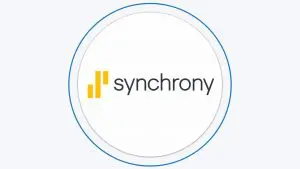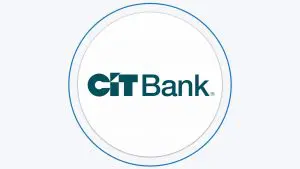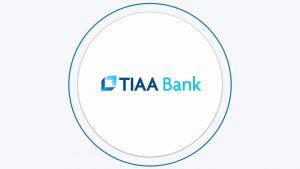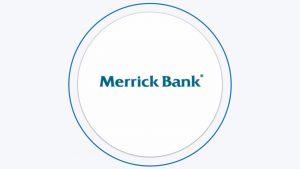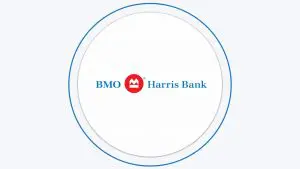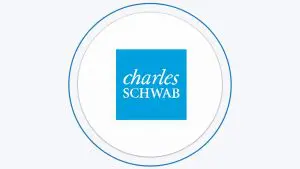Vanguard CDs
APY Range
Minimum Deposit
Terms
Our Rating
Vanguard CDs
APY Range
Minimum Deposit
Terms
Our Rating
Vanguard is primarily an investment firm, so it comes as a surprise to many that you can access CDs with this company.
Vanguard offers brokered CDs, which can be integrated into your cash investment strategies, accessing a set interest rate and enjoying FDIC coverage.
The company offers a variety of FDIC insured CDs with different terms and rates, so you can find the one best suited to your requirements and preferences.
Vanguard CD Rates
Brokered certificates of deposit are typically more competitive than those issued by other institutions. This is due to the fact that Vanguard has access to products from the whole market, including brokerage-only products and deals.
For newly issued CDs, you can choose a term of one month to seven years or more. Vanguard fixes the rates, and its 2-year CD rates are among the highest.
You’ll need a minimum investment of $1,000, but you can make additional purchases in $1,000 increments. However, since Vanguard is acting as your agent, they may charge a commission for executing your CD order.
CD Term | APY |
|---|---|
1-3 Months | 4.30% |
4-6 Months | 4.30% |
7-9 Months | 4.25% |
10-12 Months | 4.50% |
13-18 Months | 4.55% |
24 Months | 4.60% |
36 Months | 4.50% |
48 Months | 4.55% |
60 Months | 4.40% |
84 Months | 4.25% |
120 Months | 4.20% |
CD Returns Calculator: Find Your Growth
* Make sure to adjust APY, terms and deposit
How Vanguard CDs Work?
The key difference between Vanguard CDs and those you may obtain from your local bank is that they are “Brokered CDs.”
Essentially, this means that you are arranging your CD via a broker rather than a bank. This can be done in one of two ways with Vanguard.
The first way is via newly issued CDs that are purchased directly from banks, but you can also purchase secondary trade CDs that are available from other people who want to sell their brokered CD.
Secondary trades are a little more complicated, as they incur a $1 transaction fee per $1,000 and a broker assisted fee applies if you place your order over the phone.
An important difference to note in regards to brokered CDs compared to regular CDs is that you may be able to access greater liquidity. Most banks impose an early withdrawal fee if you need to access some or all of your funds before the maturity date.
However, Vanguard may be able to facilitate a sale on the secondary market. This is not a guaranteed service, but it may be possible to sell your CD and access your cash without making a substantial loss, depending on the current interest rates.
Top Offers From Our Partners
Are Vanguard CD Rates Competitive Compared to Banks?
By their very nature, brokered CDs tend to have favorable rates compared to the standard offerings from banks. The best current CD rates for 1 year are in line with what Vanguard offers.
The reason for this is that Vanguard brokers CDs from various banks and financial institutions. This means that it is possible to access some of the highest rates. However, this does come at a cost, as you’ll need to meet the minimum investment requirements and possibly pay a brokerage fee.
If you’re looking for the best CD rates with minimal fees and complications, you may prefer to look at CDs offered by online banks and credit unions. Although the specific terms can vary, you can often get comparable rates without the complexity of a brokered CD. Just watch out for early withdrawal penalties and other restrictions which may not apply with Vanguard CDs.
CD APY Range | Minimum Deposit | |
|---|---|---|
Marcus | 3.75% – 4.25% | $500 |
First Internet Bank | 3.65% – 4.20% | $1,000 |
Barclays Bank | 3.00% – 4.00% | $0 |
PNC Bank | 4.00% | $1 |
Quontic Bank | 3.00% – 4.50% | $500 |
PenFed Credit Union | 2.00% – 4.35% | $1,000 |
Alliant Credit Union | 3.10% – 4.25% | $1,000 |
Sallie Mae | 3.40% – 4.05% | $2,500 |
Bread Financial | 4.25% – 4.75% | $1,500 |
Capital One | 3.50% – 4.00% | $0 |
Chase Bank | 0.02% – 4.00% | $1,000 |
Discover Bank | 2.00% – 4.00% | $0 |
CIT Bank | 0.30% – 3.50% | $1,000 |
Ally Bank | 2.90% – 4.05% | $0 |
Citi Bank | 0.05% – 4.35% | $500 |
Connexus Credit Union | 3.51% – 4.85% | $5,000 |
Merrick Bank | 3.80% – 4.35% | $25,000 |
Fidelity | 4.20% – 4.30% | $1,000 |
Charles Schwab | 4.25%- 4.60% | $1,000 |
Vanguard | 4.20% – 4.55% | $1,000 |
BMO Harris | 0.05% – 4.50% | $1,000 |
Wells Fargo | 0.01%- 3.75% | $2,500 |
Synchrony Bank | Up to 4.35% | $0 |
Citizen Bank | 2.75% – 4.00% | $1,000 |
TD Bank | 1.00% – 4.00% | $250 |
Navy Federal | 4.05% | $1,000 |
LendingClub | 3.40% – 4.35% | $2,500 |
Vanguard CD Rates vs Savings Rates
Currently, Vanguard does not offer any savings accounts, so you would need to compare Vanguard CD rates with the savings account offerings at local traditional banks in your area and online banks.
Just be sure to check what fees apply with these savings accounts and any restrictions, so you can make a like for like comparison.
Vanguard CD vs Money Market Account Funds
As with the comparison between Vanguard CD rates and other rates offered by banks, the very nature of the Vanguard Money Market funds accounts ensures that they offer competitive rates. Vanguard sources money market accounts from around the marketplace, which means that you can access some of the best rates.
However, in comparison to typical Vanguard CD rates, the money market funds rates are a little lower, with a typical higher initial investment. Additionally, the money market funds have a typical expense ratio of 0.9% to 0.16%, which will need to be factored into the comparison.
The main reason to choose a money market fund over a CD is liquidity. Although Vanguard does offer a secondary market for brokered CDs, there are no guarantees that you’ll be able to find a buyer if you need to release your funds. These restrictions are not in place with a money market funds.
About Vanguard
Vanguard is a leader in the low cost investing niche with a history dating back to the 1970s. This investment company aims to keep investment costs lower, so that customers can enjoy more of their money working for them.
The company is customer owned, as the people who own Vanguard funds own part of the company, which makes it quite unique within the industry. This also means that Vanguard has a focus on your long term success rather than producing quarterly results. The entire Vanguard structure has been designed to align your goals with the company goals.
The current Vanguard product line includes brokered CDs, money market accounts, plus a variety of other investment products such as stocks, mutual funds, ETFs, bonds and IRAs.
FAQs
Does Vanguard Offer No Penalty CD Rates?
Yes, all Vanguard CDs have the potential to be liquidated early without a penalty.
Do Vanguard CDs come with a grace period?
No, after your CD matures, the principal amount and accrued interest are liquidated and transferred into your settlement fund. This money is then available as cash, which you can withdraw or choose to use as funding for another CD or investment product.
How Vanguard CDs interest are calculated?
The yield on Vanguard CDs is calculated as simple interest and it is not compounded. Generally, the interest accrued is paid on maturity if your CD has a term of one year or less, but some products pay monthly interest.
If your CD has a term of over one year, the interest may be paid monthly, quarterly, or semi annually, depending on the specific product.
How does the Vanguard early withdrawal penalty work?
Vanguard does not impose an early withdrawal penalty. If you wish to liquidate your funds before the maturity date, you’ll need to inquire about selling your CD via the secondary market.
This may not be available, depending on the current rates in the market and fees may apply.
Does Vanguard offer promotions on CDs?
Vanguard does not currently offer any CD promotions.
How We Rate Certificates of Deposits: Our Methodology
The Smart Investor team has thoroughly examined certificate of deposit (CD) offerings from various banks, considering multiple factors to provide a comprehensive evaluation. Here's how we rated them across four key categories:
-
CD Rates (50%): We meticulously analyzed the interest rates offered by each bank on their certificate of deposit (CD) products. Higher ratings were awarded to banks offering competitive rates that provide maximum returns for customers' investments. Factors such as the yield curve, current market conditions, and consistency of rates were considered to assess the attractiveness of each bank's CD rates.
-
CD Features (30%): This category evaluated the features associated with each bank's certificate of deposit offerings. Factors considered include the variety of terms available, early withdrawal penalties, minimum deposit requirements, and any additional features or benefits. Higher ratings were given to banks offering a diverse range of CD terms, reasonable early withdrawal fees, and flexible options to meet customers' investment needs.
-
Customer Experience (10%): A positive customer experience is paramount, even when investing in CDs. We assessed each bank's performance in this area, considering factors such as the ease of opening a CD account, the responsiveness of customer service, and overall user satisfaction. Higher ratings were assigned to banks with efficient account opening processes, helpful customer support, and a track record of satisfying customers.
-
Bank Reputation (10%): The reputation of a bank is a critical consideration when investing in CDs. We evaluated each bank's reputation based on factors such as financial stability, regulatory compliance, and public perception. Higher ratings were given to banks with a solid reputation for reliability and trustworthiness, ensuring customers' investments are safe and secure.
By considering these categories and assigning appropriate weights to each, our review aims to provide valuable insights to help individuals make informed decisions when investing in certificate of deposits.


